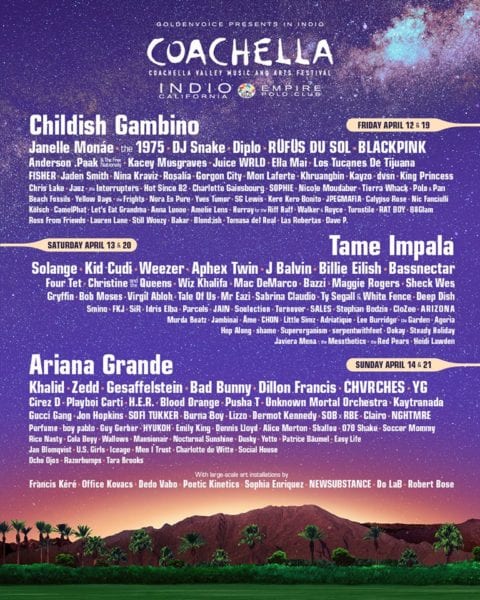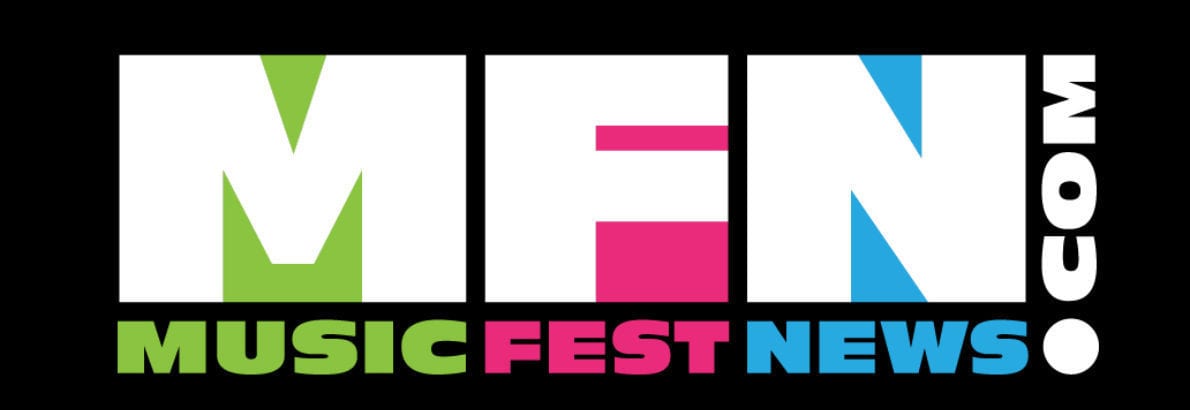
Can There Be an Ethical Consumption of Music Festivals?
Most people who go to festivals are there for the love of the music and the friendships they make there. Moreover, we tend to trust in the institutions that stage these events as having similar values as our own. It is not often that we question issues around funding or advertisement. But music festivals are big business and, although you may have seen “Business Ethics” in your undergraduate curriculum, it doesn’t mean that there is a universally accepted standard of values other than what is already law.

In a 2015 article from Billboard magazine, it was estimated that 32 million people attended a music festival that year alone (to put that in context, that is greater than the entire population of Texas), and considering the average cost of music festivals ranging in the hundreds of dollars, it is no small jump to see the potential profits. Recently news has been going around again (after the 2017 revelation) that the owner of Coachella’s parent company, Philip Anschutz (ranked the 38th wealthiest person in the United States by Forbes Magazine in 2017), has continued to fund right-wing causes such as anti-LGBTQ legislation and other purposes characterized as anathema to most of the entertainment industry (let’s not forget McCarthy’s blacklist that cost many in Hollywood their jobs and reputation during the 1950s over fear of left-wing causes). And I assure you, Coachella is no exception.

The unfortunate truth is that the two major players in the entertainment business are AEG (Anschutz’s company) and LiveNation. Myles Tanzer of Out.com goes so far as to compare the two as the difference between Coke and Pepsi – that’s how ubiquitous they are. This makes ethical concert going extremely difficult – as much for fans as it is for the artists. Now, Coachella is estimated as having grossed $114.59 million in 2017. Of course, that is only one of Anschutz’s holdings, but odds are that if you attended Coachella or any other AEG sponsored event your money has gone to benefit causes you do not agree with and maybe even vehemently oppose.
The kicker is that we trust the festivals/venues where our favorite artists perform because we trust the artists we love. But this is one of the fundamental problems associated with consumerism – and I’m sorry, but there are fewer things more establishment than attending a multi-million-dollar-grossing festival. Even worse, the establishment has learned that it is far more lucrative to NOT remove subversive entertainers (à la McCarthy) but rather to capitalize on them and use the funds to garner political influence. When you already own all the means of production, why bother preventing dissent when the only way they can rebel is by buying your product anyway?

Admittedly, that was a pretty bleak interpretation of our situation. Some would say that it is enough that we are heard, regardless of the means. Therein lies the struggle. The “New World” has been colonized for centuries – there is, as they say, nothing new under the sun. Unless we are ‘buying local,’ there seems to be no way to know whether we are participating in ethical consumption. But it is in the realm of the multi-national corporations that one gets an adequate platform for staging one’s message. Is it better to stay small and true or to make some compromises for the sake of the big picture?
I am not naïve enough to suggest that there could ever be anything as successful as a complete boycott of Coachella nor any other major music festival (if that is even a desirable outcome). Friedrich Nietzsche, in his transvaluation of all values, laid down the critique that offering the opposite of what you oppose may negate what you dislike but still maintains the overall structure that allows for your enemy to exist in the first place. If one is to truly fight against the “establishment,” it is not enough to simply do the opposite.
It is with butterflies in my stomach, though, that I remember Curt Cobain playing the opening chords to “Rape Me” during the MTV Music Video Awards in 1992. If anything embodied the establishment, it was MTV in the 1990s. Bands like Nirvana were still able to subvert inside “the belly of the beast” (as Che Guevara would say). It is a common trope to hear people say things like, “If you don’t like it here, why don’t you leave?” But this is our home, these are our platforms, and if we don’t like it, we still belong. The surest way to bring authentic change is from the inside. So, I say go to your festivals, see the artists whom you love and who inspire you. But speak up, make noise, and, as the age of social media allows, demand accountability. Negative press works.
Our natures may be what they are, but the particulars can always be changed. We are all in this for better or worse, so let’s do what we can to make it better. Nothing will happen without a demand. So, please, as an old friend of mine would say, stay bitter. But don’t cede an inch. Being “anti-x” is all well and good, but unless you have something positive to put in its place, your angst will be wasted and, eventually, co-opted. The great social activist Saul Alinsky demonstrated how, when all else failed, nothing worked better at upsetting the powers that be than to humiliate them. So, use their own devices. Attend their concerts. Buy their parking passes. Just be sure you make a lot of fucking noise while you do so.
